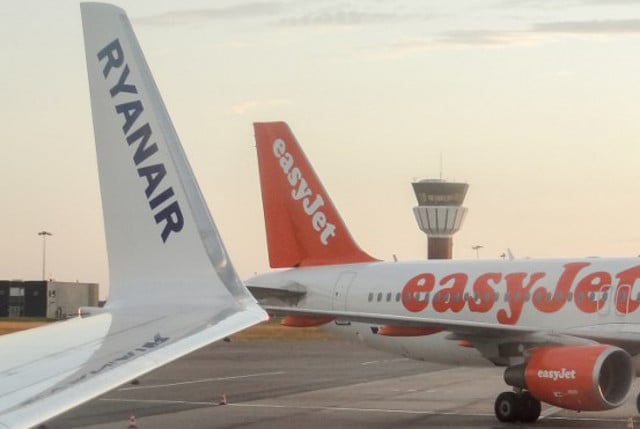Air traffic controllers from the UNSA union have downed tools at Brest, Bordeaux and Aix-en-Provence airports as part of their four-day strike that began on Monday.
On Tuesday the strike also involved controllers at Nice and Marseille airports.
But it’s not just those airports that are affected with the industrial action, motivated by a dispute over working times and conditions, having a knock-on effect across the country.
French aviation authorities say around 25 percent of flights to, from, or over the south of France are affected and that number rises to 33 percent for the west of the country.
It comes after around 375 flights were cancelled on Monday.
That meant airlines including easyJet, Ryanair and Air France have all had to scrap flights.
A statement from easyJet sent to The Local said it had to cancel 43 flights on Tuesday, four of which were to or from the UK.
“We are also expecting other flights to experience delays,” the spokesperson said.
The airline is advising its customers to check the status of their flight via the flight tracker on their website www.easyjet.com.
Ryanair also told The Local it had had to cancel “a number” of flights on Tuesday due to the “unjustified” strike action.
Customers have been told to check the status of their flights on the Ryanair website www.ryanair.com.
Both airlines have called on the government and the EU to take action to limit the impact caused by the frequent strikes by French air traffic controllers.
The airlines that are members of the Airlines for Europe (A4E) association estimate that between 2010 and 2016 air traffic control strikes have cost the industry some €12 billion.
Staff at France’s national carrier Air France also went on strike on Tuesday in a dispute over executive pay, but it did not have any extra impact on the travel chaos.
Air France said all its long haul services were guaranteed but could only operate 74 percent of domestic flights from Paris Orly and the regional airports.
Some 94 percent of Air France flights from Charles de Gaulle were running as scheduled.
Passengers at all airports should expect delays.
Let us know if you have been affected by the strike by tweeting @TheLocalFrance.
It's my birthday and I just wanted to get back to France – flight cancelled I need a drink https://t.co/x18vZqUSkb
— Emma Mayes (@tremolatfoodie) March 7, 2017



 Please whitelist us to continue reading.
Please whitelist us to continue reading.
Member comments